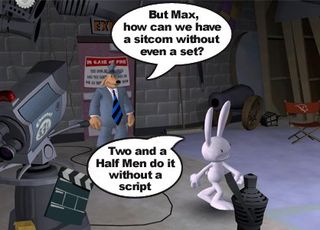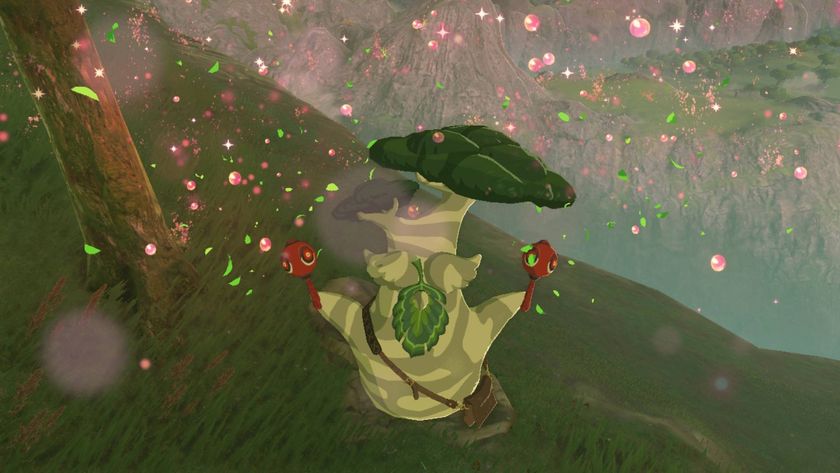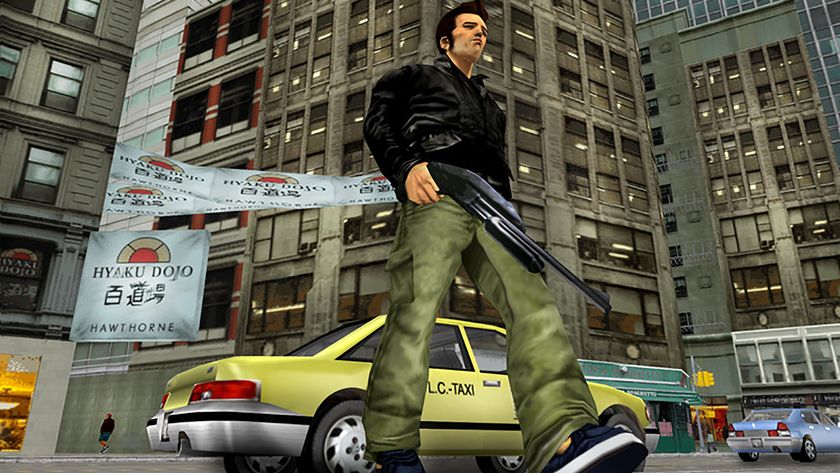Why games will replace TV
The idiot box has had its time. These games do its job better
Medical dramas
The clue is in the name. TV medical dramas are there to romanticise, dramaticise and generally awesomeicise the dull and laborious process of our medical embettering. They take a mundane and often unpleasant part of day-to-day life and make it immensely cooler than it really is. All of those hours of sitting around in waiting rooms and being poked with sharp things by tired, overworked doctors are replaced by ultra-exaggerated interpersonal drama and epic, almost action-movie feats on the part of unnaturally attractive and charismatic medical superheroes.

They turn our doctors into John McClane and our lanced boils into the stuff of legend. And for the gorehounds, there are always the surgery scenes, which give us a close-up view of our much-beloved blood and guts, but justified with a sense of scientific legitimacy.
The better, video game alternative
The Trauma Center series. If TV medical dramas exaggerate the reality, Trauma Center exaggerates the exaggeration to gleefully ludicrous levels. It’s the philosophy of TV medicine distilled to its purest form, with young rookie surgeons progressing from scalpel noob to mystical mastery over the power of life and death via bomb disposal, sentient diseases and the saving of the world via heroic suturing. With boss fights and lasers. Suddenly the sight of that guy from O Brother, Where Art Thou? pulling a kid out of a drain seems fairly pedestrian.
Above: Although a parody, this video from the guys who made the brilliantMetal Gear Awesomesums up the experience pretty beautifully
And better than that, you get to be the ludicrously empowered organ-lord, via frantically dramatic gameplay which focuses entirely on the only reason the gorehounds (ie. Most of us) watch that stuff in the first place.
Sitcoms
The TV experience
It can be a tough existence as an actor. You start out young, creative and passionate about your craft, filled with dreams of how you will express the human condition, communicate universal truths and ultimately change the world through your art. Then 10 years later your classically-trained self is dispassionately saying a series of words thinly disguised as comedic dialogue while a 22-year-old director who’s considered hot shit off the back of a couple of episodes of Hollyoaks imparts nuanced, insightful creative advice in regards to flapping your arms around more and pulling a googlier face.
Sign up to the GamesRadar+ Newsletter
Weekly digests, tales from the communities you love, and more
Above: Parody, yes, but depressingly believable
Welcome to the wonderful world of most TV sitcoms, wherein we watch a bunch of thinly-sketched stereotypes masquerading as characters getting into increasingly contrived yet predictable situations, reacting to everything in a stupendously unamusing, exaggerated fashion, and if all else fails, mugging at the camera as if doing so is suspected to be instrumental in discovering the cure for cancer. Bar the rare, often prematurely-cancelled exceptions, they are a load of old pump.
The better, video game alternative
It at first seemed a little like a strained marketing device when Telltale labelled Sam & Max: Season One as an “interactive sitcom” for its XBLA release. Did they have to resort to using TV terminology to sell the concept of an adventure game to the new generation? Egad! All that is right and pure has died!
But then we realised. That’s exactly what a good point and click should be. In fact moreso than that, good comedic adventure games are the evolution of the sitcom concept. They replace half an hour of contrivance, shouting and catchphrases with tens of hours of unique, original characterisation. The dialogue has to be superbly crafted and paced, because where TV comedy needs to be little more than an inoffensive, passive veg-out, in an adventure game the writing makes up the majority of the content of an extended interactive experience.

In a TV sitcom, we have to wait for the characters to do something funny. Adventure games are fully immersive comedic environments which are funny by their very fabric, with thousands of lines of dialogue applying to even the most innocuous of background scenery, which we are free to explore and enjoy at our own pace. And even better than all that, where TV comedy promotes a culture of “switch on, zone out”, adventure games combine clever, stimulating comedy with clever, stimulating intellectual demands. And there can be few more healthy and fun combinations for the old brain box than that.













